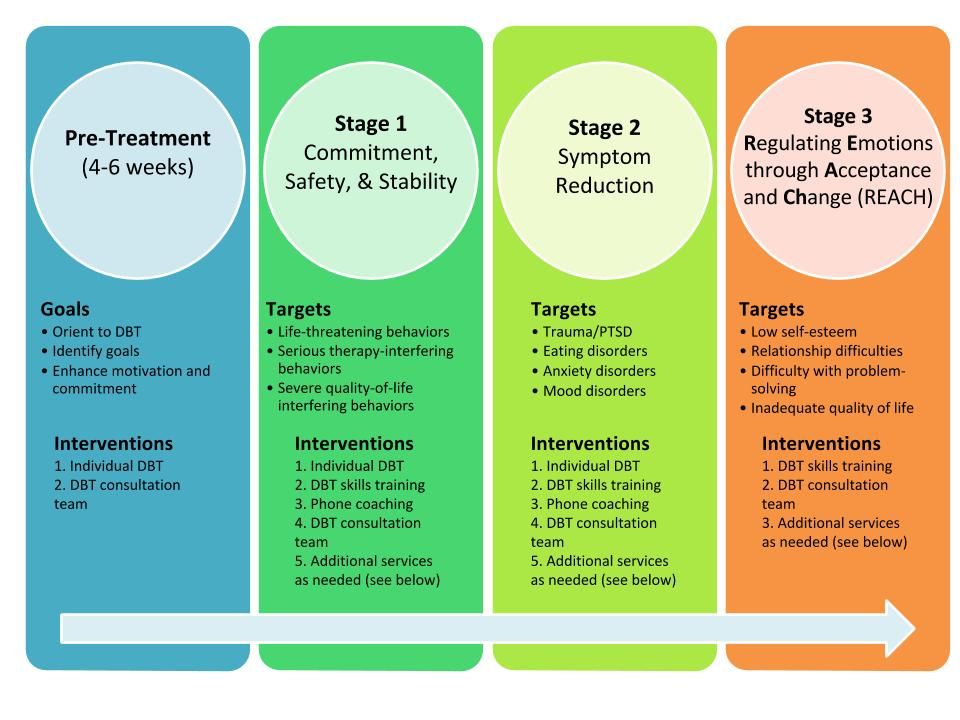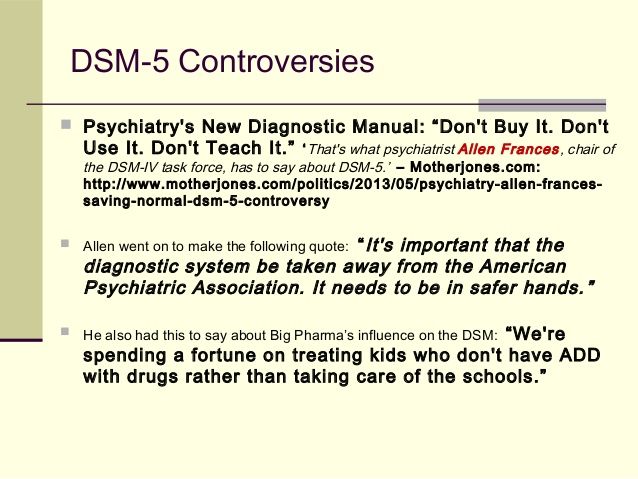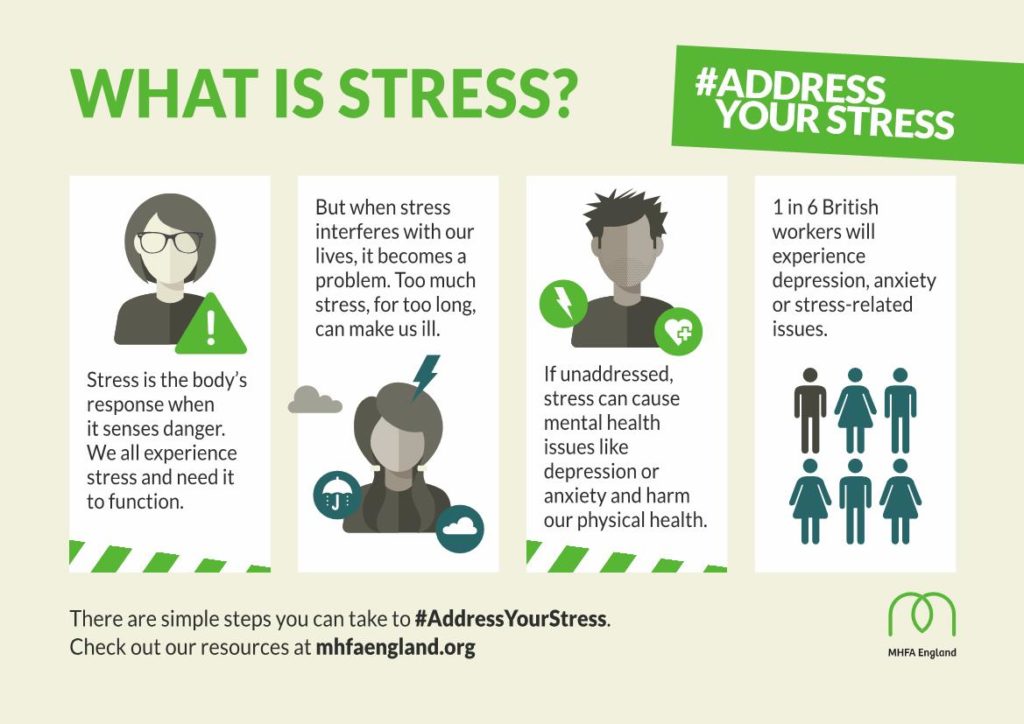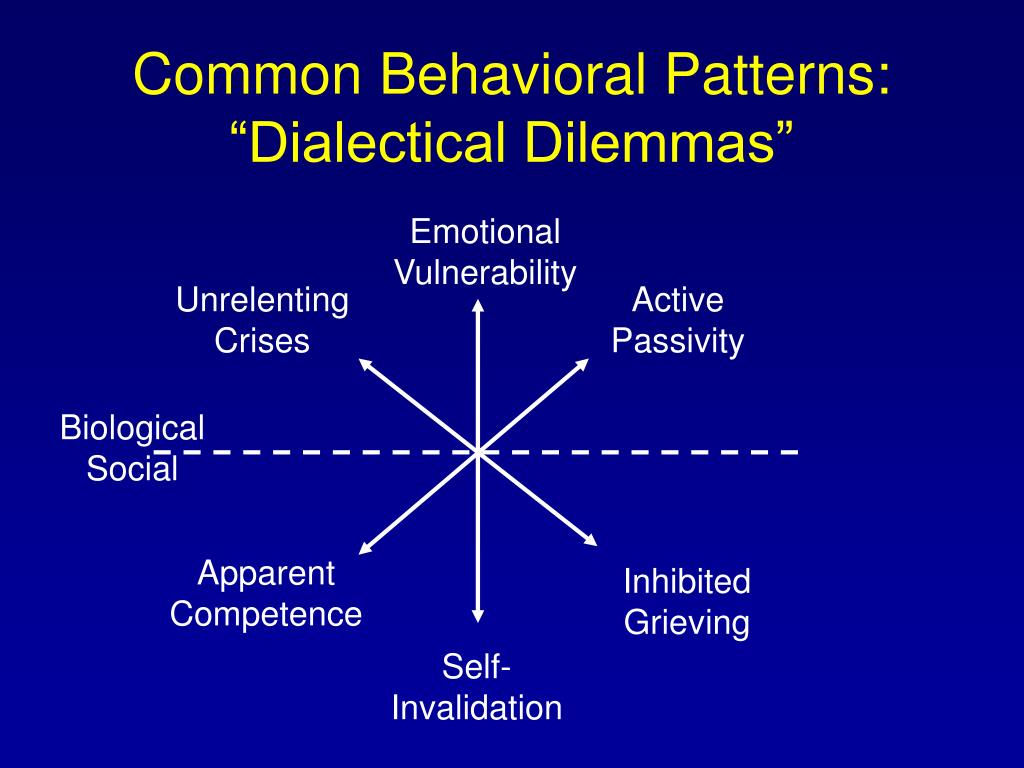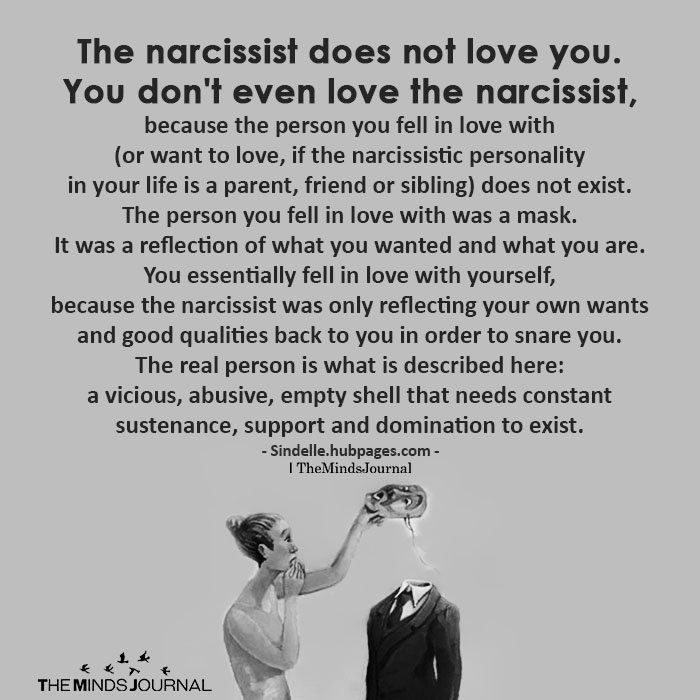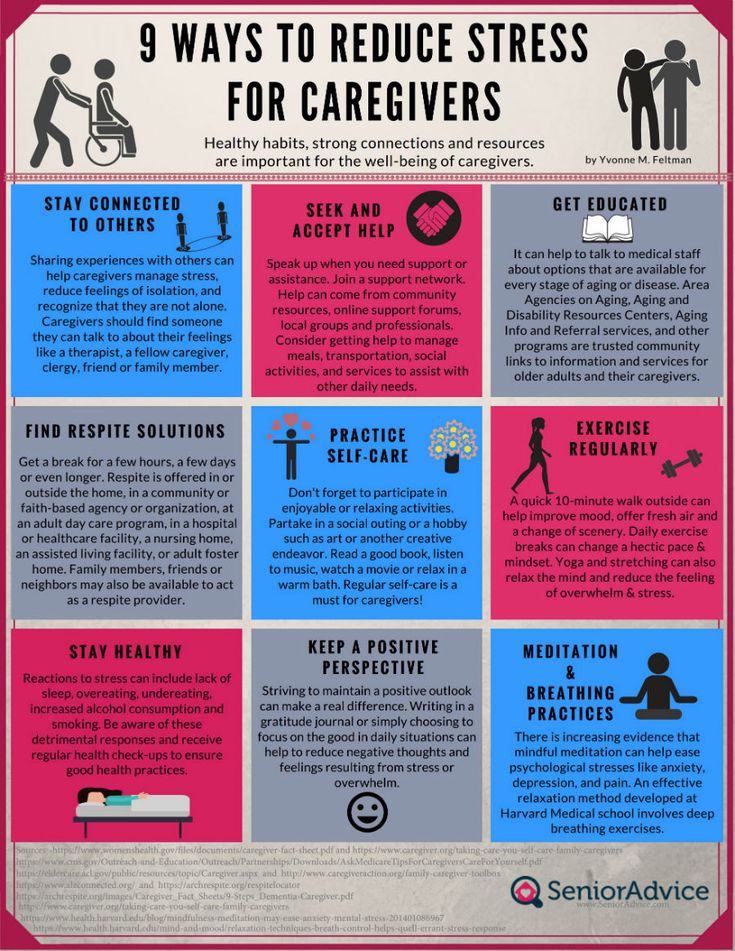Why are narcissists always angry
Why Are Narcissists So Angry?
If there is one thing consistent with a narcissist, it is their anger. The anger can be explosive or even passive, but the narcissist has no problems quickly reverting to anger in almost any situation. The anger is often from a perceived slight that they felt was enacted against them, but they strongly believe the other person was in the wrong. The narcissist will deflect onto those around them and the way they do this is with anger. Why are narcissists so angry?
The narcissist is always on the defensive to protect against shame. Shame is a feeling that you, as a person, are flawed in some way. This is different from guilt. Guilt is a feeling that you did something wrong, or could have done something wrong. The guilt is directed at a specific situation or event while the shame is a reflection of you as a person. As you can imagine, shame can be a very painful emotion because it leads to you thinking you are inadequate in some way and not worthy.
Anybody can experience shame, and this is not specific to narcissists.
However, for a narcissist, experienced shame is in direct competition with their narcissistic traits of superiority, grandiosity, and sense of entitlement. They must firmly believe those traits are true and any information suggesting otherwise is information they cannot process. This is because at the root of the narcissist, they aren’t the actual person they want the world to believe they are. They are insecure and have low self-esteem.
If the narcissist experiences shame, this is an attack on the core of who they are. They have conflicting information between their beliefs that they are superior and the deep-rooted feeling that they are flawed and inadequate. The narcissist has no effective way to deal with the activation of shame, so they move into narcissistic rage as a result of narcissistic injury.
The narcissistic rage can present as angry outbursts, or even the silent treatment which is passive aggressive. Either way, narcissistic rage is intended to push people away so the narcissist can resolve the negative emotions and thoughts they are feeling in the moment. This is all automatic and outside of the narcissist’s awareness. If you were to ask a narcissist why they got angry, they will blame shift and make it about someone else because to take responsibility would continue to be an attack on their self-worth.
Either way, narcissistic rage is intended to push people away so the narcissist can resolve the negative emotions and thoughts they are feeling in the moment. This is all automatic and outside of the narcissist’s awareness. If you were to ask a narcissist why they got angry, they will blame shift and make it about someone else because to take responsibility would continue to be an attack on their self-worth.
Narcissistic rage is one of the few coping mechanisms a narcissist has available to deal with shame and narcissistic injury and this is why they often appear angry. They lack the communication skills to work through issues that arise and are always on the defensive. They find it most effective to push people away and to make the problem about others, verses dealing with it themselves.
The narcissist lives a lie, and this is why they must always be on the defensive. Some part of them knows that they run the risk of being found out for not actually being superior and entitled. They look for any information that comes their way which could suggest they might be exposed. Any perceived slight becomes an issue insurmountable for the narcissist because it runs the risk of exposing their true selves. They have learned that narcissistic rage is their best defense to keep people at a distance and separate them from a situation they feel overwhelmed in.
They look for any information that comes their way which could suggest they might be exposed. Any perceived slight becomes an issue insurmountable for the narcissist because it runs the risk of exposing their true selves. They have learned that narcissistic rage is their best defense to keep people at a distance and separate them from a situation they feel overwhelmed in.
While the narcissist may always seem to be angry with you, they are actually angry with the world. The anger is directed at you because they can’t turn the anger inwards because that would confirm their fears that they are flawed. Anger at you is a deflection to avoid anger at themselves and their actions.
Understanding and Working Through It
Narcissistic rage is an outburst of intense anger or silence that can happen to someone with narcissistic personality disorder.
Narcissistic personality disorder (NPD) happens when someone has an exaggerated or overly inflated sense of their own importance. It’s different from narcissism because NPD is linked to genetics and your environment.
It’s different from narcissism because NPD is linked to genetics and your environment.
Someone experiencing narcissistic rage may feel that someone else or an event in their life is threatening or may injure their self-esteem or self-worth.
They may act and feel grandiose and superior to others. For example, they may demand special treatment and honor even if it appears that they’ve done nothing to earn it.
People with NPD may have an underlying feeling of insecurity and feel unable to handle anything they perceive as criticism.
When their “true self” is revealed, a person with NPD may also feel threatened, and their self-esteem is crushed.
As a result, they may react with a variety of emotions and actions. Rage is only one of them, but it’s often one of the most visible.
Repeated unreasonable reactions happen to people with other conditions, too. If you or a loved one is frequently having these rage episodes, it’s important to get a proper diagnosis and find the best treatment.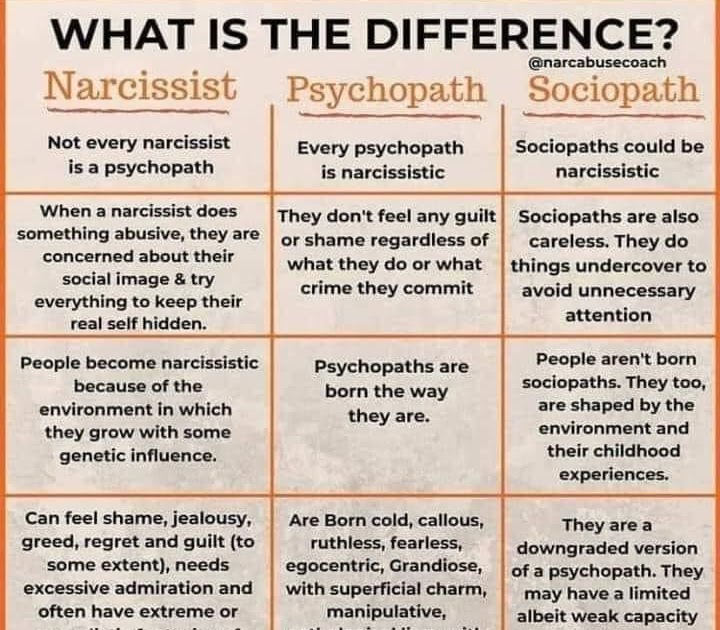
We all desire attention and admiration from the people around us.
But people with NPD may react with narcissistic rage when they aren’t given the attention that they feel they deserve.
This rage may take the form of screaming and yelling. Selective silence and passive-aggressive avoidance can also happen with narcissistic rage.
Most episodes of narcissistic rage exist on a behavior continuum. On one end, a person may be aloof and withdrawn. Their goal may be to hurt another person by being absent.
On the other end are outbursts and explosive actions. Here again, the goal may be to turn the “hurt” they feel into an attack on another person as a form of defense.
It’s important to remember that not all angry outbursts are episodes of narcissistic rage. Anyone is capable of having an angry outburst, even if they don’t have a personality disorder.
Narcissistic rage is just one component of NPD. Other conditions might also cause episodes similar to narcissistic rage, including:
- paranoid delusion
- bipolar disorder
- depressive episodes
There are three primary reasons that narcissistic rage happens.
Despite an oversized opinion of themselves, people with NPD are often hiding self-esteem that’s easily injured.
When they’re “hurt,” narcissists tend to lash out as their first line of defense. They may feel that cutting someone out or intentionally hurting them with words or violence can help them protect their persona.
A challenge to their confidencePeople with NPD tend to try building up confidence in themselves by continually getting away with lies or false personas.
When someone pushes them and exposes a weakness, people with NPD may feel inadequate. That unwelcomed emotion can cause them to lash out as protection.
Sense of self is questionedIf people reveal that someone with NPD isn’t as capable or talented as they may pretend to be, this challenge to their sense of self may result in a cutting and aggressive outburst.
NPD can cause issues in a person’s life, relationships, work, and financial situation.
People with NPD often live with illusions of superiority, grandiosity, and entitlement. They may also face additional issues like addictive behavior and narcissistic rage.
But narcissistic rage and other NPD-related issues aren’t as simple as anger or stress.
A healthcare provider or a mental health specialist like a therapist or psychiatrist can diagnose symptoms of NPD. This can help someone with NPD and symptoms of rage find the proper help they need.
There are no definitive diagnostic tests. Instead, your healthcare provider will request and review your health history as well as behaviors and feedback from the people in your life.
how NPD is diagnosedA mental health professional can determine if you have NPD based on:
- reported and observed symptoms
- physical exam to help rule out an underlying physical issue that could be causing symptoms
- psychological evaluation
- matching criteria in the Diagnostic and Statistical Manual of Mental Disorders (DSM-5) by the American Psychiatric Association
- matching criteria in the International Statistical Classification of Diseases and Related Health Problems (ICD-10), a medical classification list by the World Health Organization (WHO)
People in your life who have NPD and episodes of narcissistic rage have many resources to get help.
But it can sometimes be challenging to find the right help, as many treatment options haven’t been validated by research.
According to a 2009 report published in the Psychiatric Annals, there haven’t been many studies done on treatments for NPD and people who experience narcissistic rage as a symptom of NPD.
So while psychotherapy may work for some people, it’s not necessarily effective for all people with NPD. And not all mental health professionals even agree as to exactly how to diagnose, treat, and manage this disorder.
A 2015 study published in The American Journal of Psychiatrysuggests that the variety of symptoms that can happen in each individual with NPD can make it challenging to make a firm diagnosis of what “type” of NPD someone has:
- Overt. Symptoms are obvious and easier to diagnose with the DSM-5 criteria.
- Covert. Symptoms aren’t always visible or obvious, and behaviors or mental health conditions associated with NPD, like resentment or depression, may be hard to diagnose.

- “High-functioning”. NPD symptoms may be difficult or impossible to consider separately from the person’s regular behavior or psychological state. They may just be identified as generally dysfunctional behaviors like pathological lying or serial infidelity.
Since conditions like NPD can often only be diagnosed by looking at observable symptoms, there may be many underlying personality traits or mental activities that are impossible to tease apart into a diagnosis.
But that doesn’t mean you shouldn’t seek help. Try speaking with several mental health professionals and try different techniques to see what kind of treatment plan works best for you.
And while you or the person with NPD in your life are working through their behaviors and history, others might also find it beneficial to seek professional help for themselves.
You can learn techniques to manage narcissistic rage when it occurs or to prepare for future episodes to minimize or process the mental and emotional turmoil you might feel during an episode.
At work
Limit engagement with the individual. Trust what they say but verify that what they’ve told you is either true or false.
People with NPD may talk up their accomplishments and abilities. But if you realize they can’t or don’t perform important tasks, prepare yourself to manage their future professional deficiencies.
Also, be cautious in giving direct feedback and criticism. This can spur an intense reaction in the moment, which may put you at personal or professional risk.
It’s not your responsibility to get the person to seek help. Your feedback or criticism may be one way you’re able to encourage the individual to seek help.
Talk to your manager or the other person’s manager or seek help from your company’s human resources (HR) department.
Here are some other strategies you can use to manage interactions with coworkers who may have narcissistic tendencies or episodes of rage:
- write down every interaction you have with them in as much detail as possible
- don’t escalate conflicts with the person, as this may end up causing harm to you or others in the workplace
- don’t take it personally or attempt to get revenge on the person
- don’t reveal too much personal information or express your opinions to the person that they may be able to use against you
- try not to be in the same room alone with them so that others can be witnesses to their behaviors
- report any illegal harassment, activities, or discrimination that you observe firsthand to your company HR department
In relationship partners
It’s possible to have a healthy, productive life with a person who has NPD and episodes of rage.
But both of you may need to seek out therapy and build behavior and communication strategies that work for your relationship.
People with narcissistic rage can be hurtful. Learning how to communicate with them may help you protect yourself from physical and emotional harm. Try some of the following strategies for coping with NPD:
- present the truest version of yourself to your partner, avoiding any lying or deception
- recognize NPD symptoms in your partner or yourself, and do your best to communicate what’s going through your head when you exhibit certain behaviors
- don’t hold yourself or your partner to difficult or impossible standards, as these may exacerbate feelings of insecurity or inadequacy that lead to narcissistic rage
- set forth specific rules or boundaries within your relationship so that you and your partner know what’s expected of them as a romantic partner, rather than react on a situational basis with no structure to your expectations
- seek therapy both individually and as a couple so that you can work on yourself and on the relationship in tandem
- don’t think of yourself or your partner as having anything “wrong” but identify areas that may be disruptive to the relationship that need work
- be confident in ending the relationship if you no longer believe a relationship is healthy for you or your partner
In friends
Limit your exposure to any friend who subjects you to physical, mental, or emotional harm from narcissistic rage.
You may want to consider removing yourself from your friendship entirely if you believe the friendship is no longer healthy or mutually beneficial.
If this is a close friend whose friendship you value, you might also seek help from a mental health professional.
They can help you learn behaviors that make coping easier. You may also learn behaviors that can help you better manage interactions and communicate with your friend during episodes of rage.
This can make your time together less frustrating and more fulfilling or productive.
From a stranger
The best option is to walk away. Neither you nor that person will likely be able to reach any constructive conclusion from your interaction.
But realize that your actions didn’t cause the reaction. It’s driven by underlying factors that you don’t in any way influence.
A mental health professional can help treat both NPD and rage.
They can use talk therapy, or psychotherapy, to help people with NPD understand their behaviors, choices, and consequences. Therapists may then work with the individual to address underlying factors.
Therapists may then work with the individual to address underlying factors.
Talk therapy can also help people with NPD create new plans for behavior to develop healthier coping and relationship skills.
Help if you feel threatened
- People with NPD and narcissistic rage can hurt people in their lives, even when they don’t realize it. You don’t need to live with the constant worry about future rage. You can take steps to protect yourself.
- If you’re afraid a person with NPD in your life may cross over from verbal abuse to physical abuse or you think you’re in immediate danger, call 911 or local emergency services.
- If the threat isn’t immediate, seek help from the National Domestic Abuse Hotline at 800-799-7233. They can connect you with service providers, mental health professionals, and shelters in your area if you need assistance.
Help is available for people with NPD and narcissistic rage. With proper diagnosis and ongoing treatment, it’s possible to live a healthy, rewarding life.
In the moment, the rage may seem all-consuming and threatening. But encouraging a loved one (or yourself) to seek help may spur healthier choices for you, them, and everyone else in your lives.
How Malignant Narcissists and Other Destructive Personalities Manipulate Us - 20 Dirty Tricks
Carriers of malignant narcissism and psychopathy often exhibit destructive behavior in relationships, exploiting, humiliating and hurting their partners or partners, relatives and friends as a result.
They use many distractions to misinform people and make them responsible for what is happening.
Not only narcissistic personalities use these tricks, but it is malignant narcissists who resort to them especially often to avoid responsibility for their actions. nine0003
1. Gaslighting.
Gaslighting (a form of psychological abuse, the main task of which is to make a person doubt the objectivity of his perception, as well as reality itself. Psychological manipulation designed to expose an individual as “defective”, “abnormal” - wikipedia) is a manipulative technique that is the easiest illustrate with such typical phrases: “ There was no such ”, “ It seemed to you ” and “ Are you crazy ?”. Gaslighting is perhaps one of the most insidious manipulation techniques, because it aims to distort and undermine your sense of reality ; it eats away at your ability to trust yourself, and as a result, you begin to question the legitimacy of your complaints of insults and mistreatment.
Gaslighting is perhaps one of the most insidious manipulation techniques, because it aims to distort and undermine your sense of reality ; it eats away at your ability to trust yourself, and as a result, you begin to question the legitimacy of your complaints of insults and mistreatment.
When a narcissist, sociopath, or psychopath uses this tactic against you, you automatically side with them to resolve the cognitive dissonance that has arisen. Two irreconcilable reactions are fighting in your soul: either he is mistaken, or my own feelings. The manipulator will try to convince you that the former is completely out of the question, and the latter is the pure truth, indicating your inadequacy. nine0003
To successfully resist gaslighting, it is very important to find support in your own reality : sometimes it is enough to write down what is happening in a diary, tell friends or share with a support group. The value of outside support is that it can help you break out of the distorted reality of the manipulator and see things for yourself.
2. Projection.
One sure sign of destructiveness is when a person is chronically unwilling to see his own shortcomings and uses everything in his power to avoid responsibility for them. This is called projection. Projection is a defense mechanism used to displace responsibility for one's negative traits and behaviors by attributing them to another. Thus, the manipulator avoids admitting his guilt and responsibility for the consequences.
While we all use projection to some degree, narcissist clinical specialist Dr. Martinez-Levi notes that in narcissists, projections often become a form of psychological abuse. nine0003
Instead of admitting their own faults, flaws, and transgressions, narcissists and sociopaths prefer to blame their own vices on their unsuspecting victims, in the most obnoxious and cruel way . Instead of admitting that they could do with taking care of themselves, they prefer to shame their victims by making them responsible for their behavior.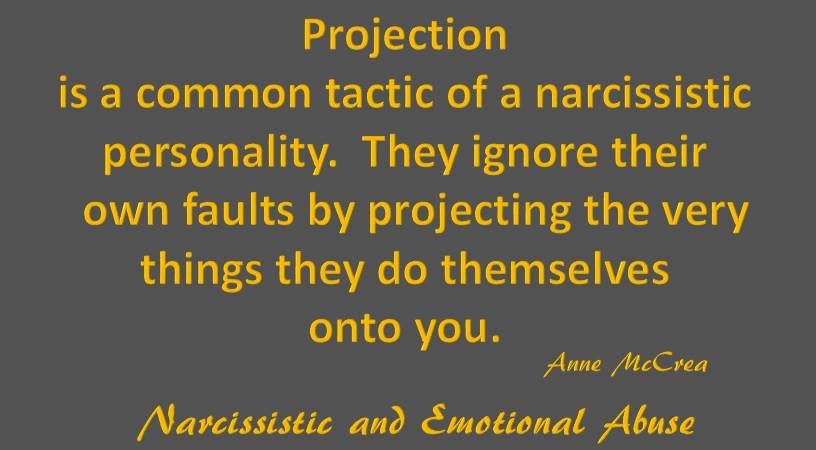 In this way, the narcissist causes others to experience the bitter shame that he feels towards himself. nine0003
In this way, the narcissist causes others to experience the bitter shame that he feels towards himself. nine0003
For example, a pathological liar may accuse his partner of lying; a needy wife may call her husband "sticky" in an attempt to make him dependent; a bad employee may call the boss ineffective in order to avoid a truthful conversation about their own performance.
Narcissistic sadists love to play blame-shifting. Goals of the game: they win, you lose, the result - you or the whole world as a whole is to blame for everything that happened to them. Thus, you have to nurse their fragile egos, and in return you are pushed into a sea of insecurity and self-criticism. Cool idea, right? nine0003
Solution? Do not "project" your own feeling of compassion or sympathy onto the destructive person and do not accept his poisonous projections on yourself. As manipulation expert Dr. George Simon writes in his book In Sheep's Clothing (2010), projecting one's own conscientiousness and value system onto others can encourage further exploitation.
Narcissists at the extreme end of the spectrum tend to be completely uninterested in introspection and change. It is important to break off all relationships and ties with destructive people as soon as possible in order to rely on your own reality and begin to value yourself. You don't have to live in a cesspool of other people's dysfunctions. nine0003
3. Hellishly meaningless talk.
If you hope for thoughtful communication with a destructive person, you will be disappointed: instead of an attentive interlocutor, you will get an epic brainfuck.
Narcissists and sociopaths use stream of consciousness, circling, personalization, projection, and gaslighting to confuse and confuse you whenever you disagree or challenge them. This is done in order to discredit, distract and upset you, divert from the main topic and make you feel guilty about the fact that you are a living person with real thoughts and feelings that dare to be different from their own. In their eyes, the problem is your existence. nine0003
nine0003
Ten minutes of arguing with a narcissist is all it takes, and you're already wondering how you even got involved. You just disagreed with his ridiculous statement that the sky is red, and now your entire childhood, family, friends, career and lifestyle are mixed with dirt. This is because your disagreement contradicts his false belief that he is omnipotent and omniscient, which leads to the so-called narcissistic injury.
Remember: destructive people are not arguing with you, they are, in fact, arguing with themselves, you are just an accomplice in a long, exhausting monologue. nine0018 They love drama and live for it. Trying to find an argument that refutes their ridiculous claims, you are only throwing wood on the fire. Don't feed narcissists - rather feed yourself the understanding that the problem is not with you, but with their abusive behavior. Stop communicating as soon as you feel the first signs of narcissism, and spend this time doing something pleasant.
4. Generalizations and allegations.
Narcissists do not always boast outstanding intelligence - many of them are not used to thinking at all. Instead of wasting time and understanding different points of view, they make generalizations based on whatever you say, ignoring the nuances of your argument and your attempts to take into account different opinions. And it's even easier to put some label on you - this automatically negates the value of any of your statements.
On a wider scale, generalizations and allegations are often used to discount phenomena that do not fit into unfounded social prejudices, schemes and stereotypes; they are also used to maintain the status quo. Thus, any one aspect of the problem is blown up so much that a serious conversation becomes impossible. For example, when popular personalities are accused of rape, many immediately begin to shout that such accusations sometimes turn out to be false. And, although false accusations do occur, they are still quite rare, and in this case, the actions of one person are attributed to the majority, while the specific accusation is ignored. nine0003
nine0003
Such everyday manifestations of micro-aggression are typical of destructive relationships. For example, you tell a narcissist that his behavior is unacceptable, and in response he immediately makes an unfounded statement about your hypersensitivity or a generalization like: “ You are always unhappy with everything” or “You are not happy with anything at all” , instead of to draw attention to the real problem. Yes, you may be oversensitive at times - but it's equally likely that your abuser is insensitive and callous most of the time. nine0003
Stick to the truth and try to resist unfounded generalizations, because this is just a form of completely illogical black and white thinking. Behind destructive people who spread unfounded generalizations is not the full wealth of human experience - only their own limited experience, coupled with an inflated sense of self-worth.
5. Deliberate perversion of your thoughts and feelings to the point of complete absurdity.

In the hands of a narcissist or sociopath, your differences of opinion, justified emotions and real experiences turn into character flaws and evidence of your irrationality. nine0003
Narcissists make up all sorts of tall tales, paraphrasing what you said in such a way that your position looks absurd or unacceptable. Let's say you point out to a destructive friend that you don't like the way he talks to you. In response, he twists your words: “ Oh, and you are with us, so perfection itself?” or “So you think I'm bad? ”- although you only expressed your feelings. This gives them the opportunity to nullify your right to think and feel about their inappropriate behavior and instills guilt in you when you try to set boundaries. nine0003
This common distraction is a cognitive distortion called "mind reading." Destructive people think they know your thoughts and feelings. They routinely jump to conclusions based on their own reactions instead of listening carefully. They act accordingly based on their own illusions and delusions and never apologize for the harm they cause as a result. Great masters of putting words into other people's mouths, they expose you as carriers of absolutely wildest intentions and opinions. They accuse you of being inadequate before you even comment on their behavior, and this is also a form of preemptive defense. nine0003
They act accordingly based on their own illusions and delusions and never apologize for the harm they cause as a result. Great masters of putting words into other people's mouths, they expose you as carriers of absolutely wildest intentions and opinions. They accuse you of being inadequate before you even comment on their behavior, and this is also a form of preemptive defense. nine0003
The best way to draw a clear line of communication with such a person is to simply say, “ I didn't say that ”, ending the conversation if he continues to accuse you of something you didn't do or say. As long as the destructive person has the ability to shift blame and divert the conversation away from their own behavior, they will continue to make you feel ashamed that you dared to contradict him in some way.
6. Niggling and changing the rules of the game.
The difference between constructive and destructive criticism is the absence of personal attacks and unattainable standards. These so-called "critics" have no desire to help you become better - they just like to find fault, humiliate and make a scapegoat out of you. nine0017 Narcissistic sadists and sociopaths resort to a sophism called "game changer" to ensure they have every reason to be constantly unhappy with you. This is when, even after you've provided all sorts of evidence to support your argument or taken all possible steps to meet their request, they make a new claim or want more evidence.
These so-called "critics" have no desire to help you become better - they just like to find fault, humiliate and make a scapegoat out of you. nine0017 Narcissistic sadists and sociopaths resort to a sophism called "game changer" to ensure they have every reason to be constantly unhappy with you. This is when, even after you've provided all sorts of evidence to support your argument or taken all possible steps to meet their request, they make a new claim or want more evidence.
Do you have a successful career? The narcissist will nitpick why you are still not a multimillionaire. Did you satisfy his need for 24/7 babysitting? Now prove that you can remain "independent". The rules of the game will constantly change and can easily even contradict each other; the sole purpose of this game is to get you to seek the attention and approval of a narcissist. nine0003
By continually raising or replacing expectations, destructive manipulators can instill in you a pervasive sense of worthlessness and a constant fear of inadequacy. By isolating one minor episode or one of your failures and blowing it up to gigantic proportions, the narcissist forces you to forget about your own strengths and instead worry about your weaknesses or shortcomings all the time. It forces you to think of new expectations that you will now have to live up to, and as a result, you go out of your way to meet his every demand - and in the end it turns out that he still treats you badly. nine0003
By isolating one minor episode or one of your failures and blowing it up to gigantic proportions, the narcissist forces you to forget about your own strengths and instead worry about your weaknesses or shortcomings all the time. It forces you to think of new expectations that you will now have to live up to, and as a result, you go out of your way to meet his every demand - and in the end it turns out that he still treats you badly. nine0003
Don’t be fooled by nitpicking and changing the rules of the game - if a person prefers to suck over some insignificant episode over and over again, while not paying attention to all your attempts to confirm his case or satisfy his requirements, then he is not driven at all by the desire to understand you . He is driven by the desire to make you feel that you must constantly strive to earn his approval. Appreciate and approve of yourself. Know that you are a whole person and should not constantly feel ungrateful or unworthy. nine0003
7.
 Change of subject to avoid responsibility.
Change of subject to avoid responsibility. I call this maneuver “ How about me syndrome? ". This is a literal digression from the topic under discussion in order to transfer attention to a completely different one. Narcissists do not want to discuss the issue of their personal responsibility, so they divert the conversation in the direction they want. Are you complaining that he doesn't make time for the kids? It will remind you of the mistake you made seven years ago. This maneuver knows neither temporal nor thematic framework and often begins with the words: " And when you... »
On a societal level, these techniques are used to disrupt discussions that challenge the status quo. A conversation about gay rights, for example, can be derailed as soon as one of the participants raises the issue of another pressing issue, diverting everyone's attention from the original dispute.
As Tara Moss, author of "Speaking Out: A 21st Century Handbook for Women and Girls" points out, specificity is needed for proper consideration and resolution of issues - this does not mean that the topics raised along the way are not important, it just means that for each Themes have their time and their context. nine0003
nine0003
Don't get distracted; if someone is trying to change concepts, use the “broken record” method, as I call it: keep repeating facts stubbornly without deviating from the topic. Move the arrows back, say: “ I'm not talking about that now. Let's not get distracted ." If it does not help, stop the conversation and direct your energy to a more useful channel - for example, find an interlocutor who is not stuck in mental development at the level of a three-year-old baby.
8. Hidden and overt threats. nine0009
Narcissists and other destructive personalities feel very uncomfortable when their belief that the whole world is indebted to them, a false sense of superiority or colossal self-esteem is called into question by someone. They tend to make unreasonable demands on others—and in doing so, punish you for not living up to their unattainable expectations.
Instead of maturely resolving disagreements and seeking compromise, they try to deprive you of the right to your own opinion, seeking to teach you to be afraid of the consequences of any disagreement with them or non-compliance with their requirements. They respond to any disagreement with an ultimatum, their standard reaction is “ do this, otherwise I'll do that ."
They respond to any disagreement with an ultimatum, their standard reaction is “ do this, otherwise I'll do that ."
If, in response to your attempts to draw a line or express a different opinion, you hear an orderly tone and threats, whether it be veiled hints or detailed promises of punishments, this is a sure sign: you are looking at a person who is sure that everyone owes him, and he never will compromise. Take the threats seriously and show the narcissist that you are not joking by documenting them if possible and reporting them to the appropriate authorities.
9. Insults. nine0009
Narcissists preemptively make an elephant out of a fly when they sense the slightest threat to their sense of superiority. In their understanding, only they are always right, and anyone who dares to say otherwise inflicts a narcissistic injury on them, leading to narcissistic rage. According to Dr. Mark Goulston, narcissistic rage is not the result of low self-esteem, but rather a belief in one's own infallibility and a false sense of superiority.
In the lowest of this type, narcissistic rage takes the form of insults when it fails to otherwise influence your opinion or emotions. nine0017 Insults are a quick and easy way to offend, humiliate and ridicule your mental abilities, appearance or behavior, while depriving you of the right to be a person with your own opinion.
Insults can also be used to criticize your beliefs, opinions and ideas. A well-founded point of view or a compelling rebuttal suddenly becomes "ridiculous" or "idiotic" in the hands of a narcissist or sociopath who feels hurt but can't make a substantive objection. Unable to find the strength to attack your argument, the narcissist attacks you, seeking in every possible way to undermine your authority and question your mental abilities. As soon as insults are used, it is necessary to interrupt further communication and unequivocally state that you do not intend to tolerate this. Don't take it personally: understand that they resort to insults only because they don't know any other way to get their point across.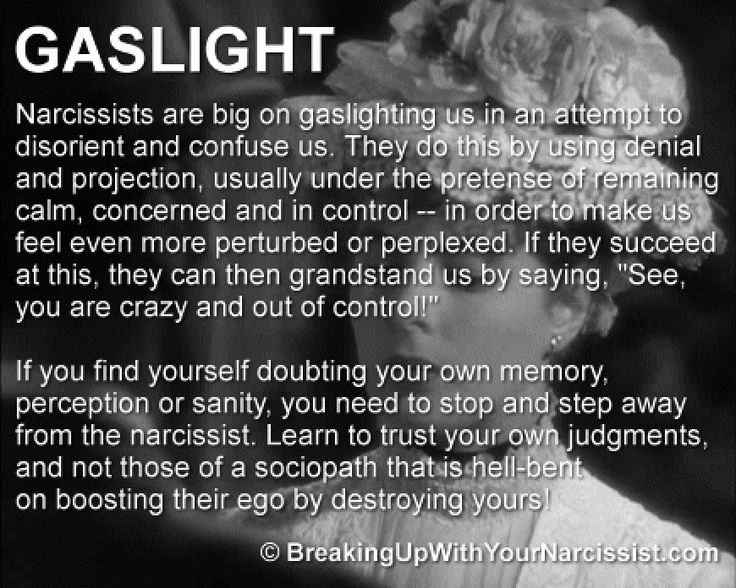 nine0003
nine0003
10. Training.
Destructive people teach you to associate your strengths, talents, and happy memories with abuse, disappointment, and disrespect. To this end, they, as if by chance, make derogatory remarks about your qualities and properties that they themselves once admired, and also sabotage your goals, spoil your holidays, vacations and weekends. They can even isolate you from friends and loved ones and make you financially dependent on them. nine0017 You, like Pavlov's dogs, are essentially "trained", making you afraid to do all the things that once made your life rich.
Narcissists, sociopaths, psychopaths, and other destructive personalities do this to draw attention to themselves and how you can meet their needs. If some external factor can prevent them from completely and completely controlling your life, they seek to destroy it. They need to be the center of attention all the time. In the idealization stage, you were the center of the narcissist's world - and now the narcissist should be the center of your world. nine0003
nine0003
In addition, narcissists are naturally morbidly jealous and cannot bear the thought that anything can shield you even in the slightest from their influence. For them, your happiness is everything that is not available to them in their emotionally scarce existence. After all, if you find that you can get respect, love, and support from someone who is non-destructive, what will keep you from parting with them? In the hands of a destructive person, “training” is an effective way to get you to tiptoe and always stop halfway to your dream. nine0003
11. Slander and persecution.
When destructive personalities cannot control how you perceive yourself, they begin to control how others perceive you; they take on the role of a martyr, making you look destructive. Slander and gossip is a preemptive strike designed to destroy your reputation and denigrate your name so that you have no support left in case you still decide to break off relations and leave a destructive partner. They may even harass and harass you or someone you know, ostensibly to "expose" you; such "exposure" is just a way to cover up your own destructive behavior by projecting it onto you. nine0003
They may even harass and harass you or someone you know, ostensibly to "expose" you; such "exposure" is just a way to cover up your own destructive behavior by projecting it onto you. nine0003
Sometimes gossip bitters two people or even whole groups of people against each other. The victim in a destructive relationship with a narcissist often doesn't know what's being said about her as long as the relationship lasts, but usually the whole truth comes out when it breaks down.
Destructive people will gossip behind your back (and to your face too), tell nasty things about you to your or your loved ones, spread rumors that make you the aggressor and them the victim, and attribute to you precisely such actions, the accusations of which with your side they are most afraid of. In addition, they will methodically, covertly and intentionally hurt you, so that later they will cite your reactions as evidence that they are the “victim” in your relationship. nine0003
The best way to counter slander is to always keep yourself in check and stick to the facts.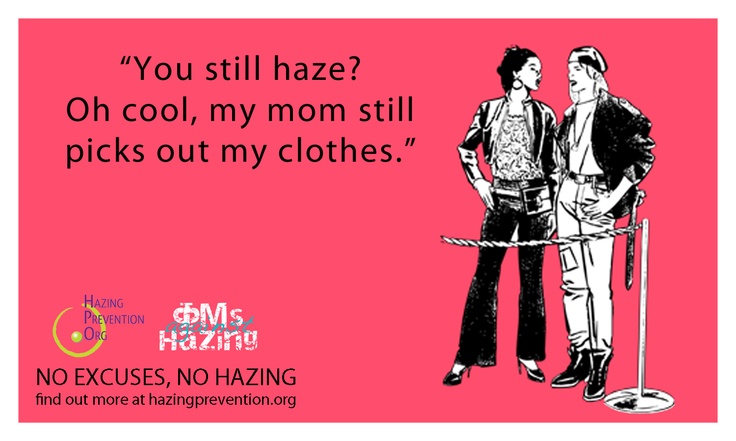 This is especially true for conflict divorces with narcissists, who may deliberately provoke you in order to use your reactions against you later. If possible, document any form of harassment, intimidation and abuse (including online), try to communicate with the narcissist only through your lawyer. When it comes to harassment and intimidation, you should contact law enforcement; it is advisable to find a lawyer who is well versed in narcissistic personality disorder. Your honesty and sincerity will speak for themselves as the mask begins to peel off the narcissist. nine0003
This is especially true for conflict divorces with narcissists, who may deliberately provoke you in order to use your reactions against you later. If possible, document any form of harassment, intimidation and abuse (including online), try to communicate with the narcissist only through your lawyer. When it comes to harassment and intimidation, you should contact law enforcement; it is advisable to find a lawyer who is well versed in narcissistic personality disorder. Your honesty and sincerity will speak for themselves as the mask begins to peel off the narcissist. nine0003
12. Love bombardment and devaluation.
Destructive people take you through the stage of idealization until you take the bait and start a friendship or romantic relationship with them. Then they begin to devalue you, expressing contempt for everything that initially attracted them to you. Another typical case is when a destructive person puts you on a pedestal and begins to aggressively devalue and humiliate someone else who threatens his sense of superiority. nine0003
nine0003
Narcissists do this all the time: they scold their exes in the presence of new partners/partners, and over time begin to treat new ones with the same disdain. Ultimately, any partner of a narcissist will experience the same thing as the previous ones. In such a relationship, you will inevitably become another ex, whom he will vilify in the same way with his next girlfriend. You just don't know it yet. So don't forget about the love bombardment method if your partner's behavior towards others contrasts sharply with the sugary sweetness that he displays in a relationship with you. nine0003
As personal growth coach Wendy Powell suggests, a good way to resist love bombardment from someone you see as potentially destructive is to take your time. Keep in mind that the way a person speaks of others can foreshadow how they will one day feel about you.
13. Preventive defense.
When someone strongly emphasizes that he/she is a “nice guy” or “nice girl”, they immediately begin to say that you should “trust him (her)”, or for no reason assures you of your honesty - be careful. nine0003
nine0003
Destructive and violent individuals exaggerate their ability to be kind and compassionate. They often tell you that you should "trust" them without first building a solid foundation for such trust. They can skillfully "disguise" themselves, portraying a high level of empathy and empathy at the beginning of your relationship, only to later reveal their true identity. When the cycle of violence reaches the stage of devaluation, the mask begins to slip, and you see their true nature: terribly cold, callous and dismissive. nine0003
Genuinely good people rarely have to constantly boast about their positive qualities - they exude warmth rather than talk about it, and they know that actions are much more important than words. They know that trust and respect is a two-way street that requires reciprocity, not constant suggestion.
To counter preventive defense, think about why a person emphasizes his good qualities. Because he thinks you don't trust him, or because he knows he's not trustworthy? Judge not by empty words, but by deeds; it is actions that will tell you whether the person in front of you matches the one he claims to be.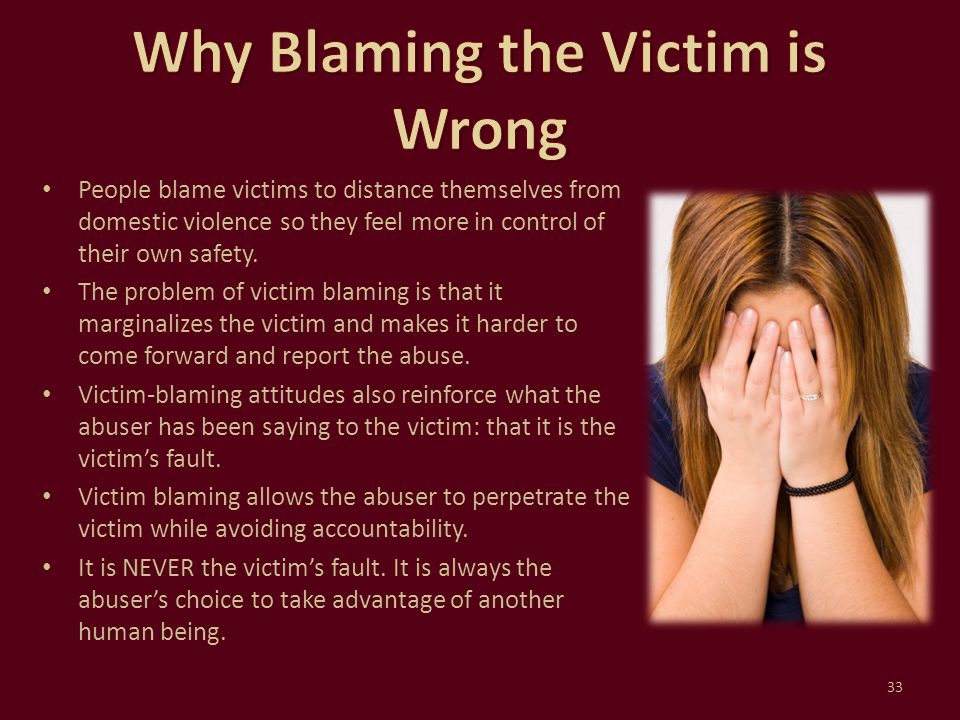 nine0003
nine0003
14. Triangulation.
Referring to an opinion, point of view, or the threat of bringing an outsider into the communication dynamic is called "triangulation." A common device for asserting the rightness of a destructive individual and discounting the victim's reactions, triangulation often results in love triangles in which you feel defenseless and unbalanced.
Narcissists love to triangulate their partner/partner with strangers, co-workers, ex-spouses, friends and even family members to make them jealous and insecure. They also use the opinions of others to support their point of view. nine0003
This maneuver is designed to take your attention away from the psychological abuse and present the narcissist in a positive way as a popular, desirable person. Plus, you start to doubt yourself: since Mary agrees with Tom, it turns out that I'm still wrong? In fact, narcissists are happy to “tell” you nasty things that others supposedly said about you, while they themselves say nasty things behind your back.
To counter triangulation, remember that whoever the narcissist triangulates you with, that person is also triangulated by your relationship with the narcissist. Essentially, the narcissist is in charge of all the roles. Answer him with your own "triangulation" - find the support of a third party beyond his control, and do not forget that your position also has value. nine0003
15. Lure and pretend to be innocent.
Destructive individuals create a false sense of security so that they can more easily demonstrate their cruelty. As soon as such a person drags you into a senseless, random quarrel - and it quickly develops into a showdown, because he does not know the feeling of respect. Petty disagreement can be bait, and even if you initially restrain yourself as polite, you will quickly realize that it is driven by a malicious desire to humiliate you. nine0003
Having "lured" you with a seemingly innocent comment disguised as a rational argument, they begin to play with you. Remember: Narcissists know your weaknesses, nasty phrases that undermine your self-confidence, and painful topics that open up old wounds - and they use this knowledge in their machinations to provoke you. After you have swallowed the profit whole, the narcissist will calm down and innocently ask if you are “okay”, assuring that he “did not mean” to stir your soul. This feigned innocence takes you by surprise and makes you believe he didn't really mean to hurt you, until it starts to happen so often that you can no longer deny his obvious malicious intent. nine0003
Remember: Narcissists know your weaknesses, nasty phrases that undermine your self-confidence, and painful topics that open up old wounds - and they use this knowledge in their machinations to provoke you. After you have swallowed the profit whole, the narcissist will calm down and innocently ask if you are “okay”, assuring that he “did not mean” to stir your soul. This feigned innocence takes you by surprise and makes you believe he didn't really mean to hurt you, until it starts to happen so often that you can no longer deny his obvious malicious intent. nine0003
It is advisable to immediately understand when they are trying to lure you in order to stop communication as soon as possible. Common baiting techniques are provocative statements, insults, hurtful accusations, or unfounded generalizations. Trust your intuition: if some phrase seemed to you somehow “not like that”, and this feeling did not go away even after the interlocutor explained it, perhaps this is a signal that you should slowly comprehend the situation before reacting.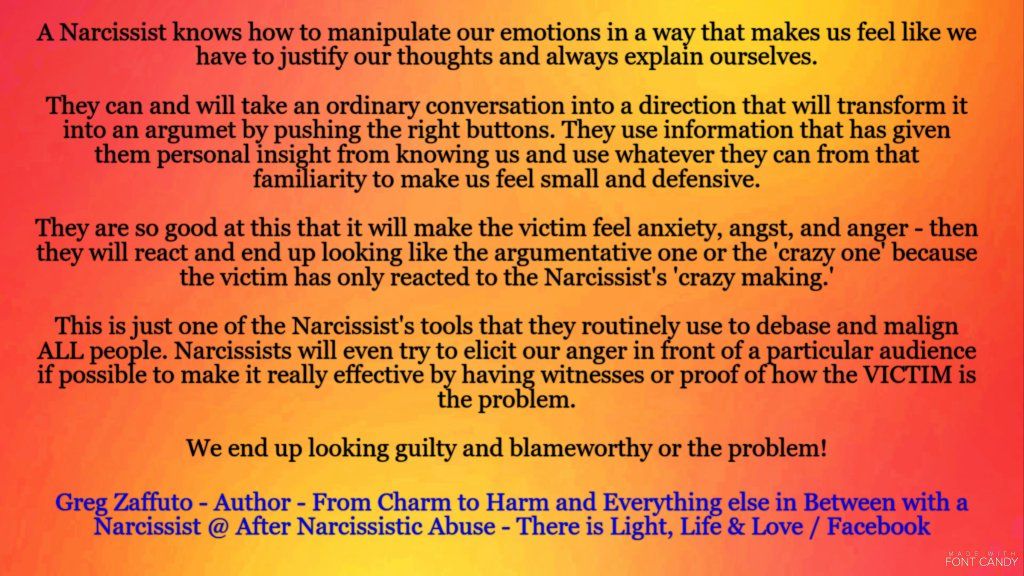
16. Boundary testing and vacuum cleaner tactics. nine0009
Narcissists, sociopaths, and other destructive personalities are constantly testing your boundaries to see which ones can be violated. The more violations they can commit with impunity, the further they will go.
This is why survivors of emotional and physical abuse often face even more abuse whenever they decide to return to their abusers.
Rapists often resort to "vacuum cleaner tactics", as if "sucking" their victim back with sweet promises, fake remorse and empty words about how they change, only to subject her to new bullying. In the sick mind of the abuser, this boundary testing serves as a punishment for trying to resist the violence, as well as for returning to it. When a narcissist tries to start over from scratch, reinforce the boundaries even more, rather than retreat from them. nine0003
Remember: manipulators do not respond to empathy and sympathy. They only react to the consequences.
17. Aggressive injections disguised as jokes.
Covert narcissists love to tell you nasty things. They pass them off as " just jokes ", as if reserving the right to make disgusting comments while maintaining an innocent calmness. But as soon as you get angry at rude, obnoxious remarks, they accuse you of not having a sense of humor. This is a common technique for verbal abuse. nine0003
The manipulator betrays a contemptuous smirk and a sadistic glint in his eyes: like a predator playing with prey, he enjoys the fact that he can offend you with impunity. This is just a joke, right? Not this way. It's a way to convince you that his insults are just a joke, a way to turn the conversation from his cruelty to your alleged hypersensitivity. In such cases, it is important to stand your ground and make it clear that you will not tolerate such treatment.
When you bring these subtle insults to the attention of the manipulator, he can easily resort to gaslighting, but continue to defend your position that his behavior is unacceptable, and if it does not help, stop communicating with him. nine0003
nine0003
18. Condescending sarcasm and patronizing tone.
Belittling and humiliating others is a destructive person's forte, and tone of voice is just one of the many tools in his arsenal. Giving each other sarcastic remarks can be fun when it's mutual, but the narcissist uses sarcasm purely as a form of manipulation and humiliation. And if it hurts you, then you are " overly sensitive ".
It's okay that he himself throws tantrums every time someone dares to criticize his inflated ego - no, it's the victim who is hypersensitive. When you are constantly being treated like a child and being challenged for your every statement, you develop a natural fear of expressing your feelings without fear of reprimand. This kind of self-censorship saves the abuser from having to shut your mouth because you are doing it yourself. nine0003
When faced with a condescending demeanor or patronizing tone, state it clearly and concisely. You do not deserve to be spoken to like a child, and even more so you do not have to remain silent for the sake of someone's megalomania.
19. Shaming.
“Shame on you!” is a favorite saying of destructive people. Although it can be heard from quite normal people, in the mouth of a narcissist and a psychopath, shame is an effective method of dealing with all sorts of attitudes and actions that threaten their undivided power. nine0018 It is also used to destroy and nullify the victim's self-esteem: if the victim dares to be proud of something, then shaming them for that particular attribute, quality or achievement can lower their self-esteem and stifle any pride in the bud.
Narcissists, sociopaths and psychopaths love to use your wounds against you; they may even make you feel ashamed of the wrongs or abuse you have suffered, causing you new psychological trauma. Did you experience abuse as a child? A narcissist or sociopath will tell you that you somehow deserved it, or brag about their own happy childhood in order to make you feel inadequate and worthless. What better way to offend you than to pick up old wounds? Like a doctor in reverse, a destructive person seeks to deepen your wound, not heal it.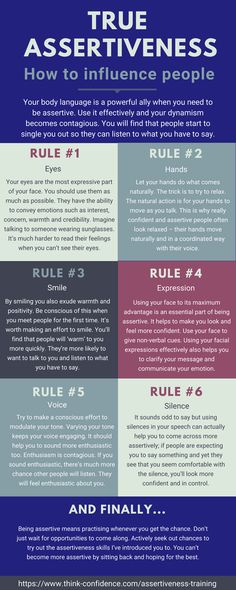 nine0003
nine0003
If you suspect that you are dealing with a destructive person, try to hide your vulnerable sides or long-standing psychological trauma from him. Until he proves that he can be trusted, you should not give him information that can then be used against you.
20. Control.
Most importantly: destructive people seek to control you in any way they can. They isolate you, manage your finances and social circle, and control every aspect of your life. But the most powerful tool in their arsenal is playing on your feelings. nine0003
This is why narcissists and sociopaths create conflict situations out of the blue, just to make you feel insecure and unstable. That is why they constantly argue over trifles and get angry at the slightest provocation. That is why they become emotionally isolated, and then again rush to idealize you, as soon as they feel that they are losing control. That is why they oscillate between their true and false selves, and you never feel psychologically safe because you cannot understand what your partner really is. nine0003
nine0003
The more power they have over your emotions, the more difficult it will be for you to trust your feelings and realize that you have been the victim of psychological abuse. By learning about manipulative techniques and how they undermine your self-confidence, you will be able to understand what you are facing and at least try to regain control of your own life and stay away from destructive people .
Lifter translation based on Thoughtcatalog.
Photo: Danielle Drislane
Telegram
Why does the narcissist put you down and devalue you?
It is common for a narcissist to devalue or "extinguish" others. Why does he do this, what is behind this behavior, what can it lead to and how to deal with it? You will find the answer in this article.
Gaslighting is a term that comes from the English gaslighting. In America, this is a popular term meaning that they want to drive you crazy. There is an American film of the same name, Gaslighting. The plot of the film is this. A polygamist criminal marries a young rich woman in order to take over her entire inheritance. To do this, he decides to shine her crazy. It extinguishes the gas lamps in the house, that is, it makes the light less bright. The wife asks: “Why is the light so dim in the house? Did you turn off the lights?" The husband says: "The light is normal, as always, bright, no one extinguished anything." And he did this day after day. Or, it happened, he would shift the brooch to another room and then ask: “Where is that brooch that I gave you?” She searches and cannot find, and he says to her: “Look, you moved her here.” And the girl begins to think that she is losing her memory, she does not remember anything. In between extinguishing, he kisses her, hugs her and says that he loves her. The woman begins to doubt herself and think that she is crazy, something is happening to her head.
In America, this is a popular term meaning that they want to drive you crazy. There is an American film of the same name, Gaslighting. The plot of the film is this. A polygamist criminal marries a young rich woman in order to take over her entire inheritance. To do this, he decides to shine her crazy. It extinguishes the gas lamps in the house, that is, it makes the light less bright. The wife asks: “Why is the light so dim in the house? Did you turn off the lights?" The husband says: "The light is normal, as always, bright, no one extinguished anything." And he did this day after day. Or, it happened, he would shift the brooch to another room and then ask: “Where is that brooch that I gave you?” She searches and cannot find, and he says to her: “Look, you moved her here.” And the girl begins to think that she is losing her memory, she does not remember anything. In between extinguishing, he kisses her, hugs her and says that he loves her. The woman begins to doubt herself and think that she is crazy, something is happening to her head. Of course, she has no suspicions about her husband - she is in love. The criminal wants to make her self-doubt by means of cancellation and hopes to acquire power over her, and then take possession of all the property. Fortunately, cunning detectives brought him to clean water and she saw what kind of person he was. But it was very difficult for her to accept the idea that her husband was so treacherous, she resisted to the last. nine0003
Of course, she has no suspicions about her husband - she is in love. The criminal wants to make her self-doubt by means of cancellation and hopes to acquire power over her, and then take possession of all the property. Fortunately, cunning detectives brought him to clean water and she saw what kind of person he was. But it was very difficult for her to accept the idea that her husband was so treacherous, she resisted to the last. nine0003
The narcissist also uses the technique of "extinguishing", although perhaps not as consciously as this criminal. He tries to make his victim doubt himself. And it is also very difficult for the victim to believe that this is manipulation.
There are two levels of blanking, direct and indirect.
In the case of direct "quenching " simply direct messages are used: "You are stupid, you don't understand anything, you forget everything." Public humiliation, devaluation, ridicule, name calling, physical abuse are all tools of the narcissist. This is obvious, and everyone understands everything. Direct "quenching" is practiced by some parents. When a child does not understand how to do a task, they shout: “You are stupid, how much can I explain to you?” - and they can also slap a slap on the back of the head. The more the parent gets angry and screams, the more the child does not understand: the suggestion of stupidity begins to work. The slap partially turns off the consciousness, and the information goes directly to the subconscious and programs for further misunderstanding of the lessons and for a decrease in mental abilities. Thus, parents not only block the mental development of the child, but also raise a narcissist, a sociopath, a neurotic, or a potential victim of a narcissist. nine0003
This is obvious, and everyone understands everything. Direct "quenching" is practiced by some parents. When a child does not understand how to do a task, they shout: “You are stupid, how much can I explain to you?” - and they can also slap a slap on the back of the head. The more the parent gets angry and screams, the more the child does not understand: the suggestion of stupidity begins to work. The slap partially turns off the consciousness, and the information goes directly to the subconscious and programs for further misunderstanding of the lessons and for a decrease in mental abilities. Thus, parents not only block the mental development of the child, but also raise a narcissist, a sociopath, a neurotic, or a potential victim of a narcissist. nine0003
One of my clients told me about her narcissistic father. When she was 7 years old, she forgot to flush after herself in the toilet. Her father was terribly angry and yelling. The more angry, the more she forgot. As a result, he began to dip her head into the toilet. The woman grew up with a vague understanding of who she is and what she wants in life, with a feeling of overwhelming laziness and apathy. The very foundations of identity were destroyed in childhood by the narcissistic father.
The woman grew up with a vague understanding of who she is and what she wants in life, with a feeling of overwhelming laziness and apathy. The very foundations of identity were destroyed in childhood by the narcissistic father.
In extreme cases, after repeated and prolonged "quenching", dissociation phenomena can be observed. The feeling that you have left your body and are watching yourself from the side. The body becomes, as it were, wooden, does not obey, but there is peace in the soul, even euphoria. This is such a protective mechanism that helps to disconnect from emotional pain, to dissociate from feelings. Victims of violence, by the mechanism of dissociation, can acquire multiple personality disorder, when there are several personalities in one person, they change involuntarily, and one personality does not know anything about the other. Sometimes dissociation leads to amnesia. nine0003
The second type of "cancellation" - indirect and hidden "cancellation" . What does it look like? It seems that nothing obvious happened, they didn’t directly lower you, but you begin to doubt yourself: “Is everything okay with me?”. For example, you say to a friend: “I went on vacation to Sochi, I had such a great rest!”, And she asks: “Why in Sochi? It's so dirty there. Why not go to Turkey? And you begin to doubt your choice and think: “Did I really have a good rest?”
What does it look like? It seems that nothing obvious happened, they didn’t directly lower you, but you begin to doubt yourself: “Is everything okay with me?”. For example, you say to a friend: “I went on vacation to Sochi, I had such a great rest!”, And she asks: “Why in Sochi? It's so dirty there. Why not go to Turkey? And you begin to doubt your choice and think: “Did I really have a good rest?”
You will be asked for advice: "How to do it?". You explain with great enthusiasm, and the narcissist will say, "Well, I've heard that somewhere before, it's not new." Or you share some of your methods, and he will say: “Well, let's say this is not your method, I have already read about it.” Your importance is downgraded, you think: "Is it true, what's wrong with that, I'm not that smart." nine0003
Or you were asked: “Where are you going to study?” You answer: “To the university in Moscow,” and they say to you: “Are you sure? Can you get through there?" And so several times. And you begin to doubt that you can do it, and you give up on your dream.
And you begin to doubt that you can do it, and you give up on your dream.
Another example. They say to you: “Why didn’t you turn off the light?” - although you remember exactly what was turned off. And so you repeat three times. You go every day and check to see if you turned off the light, and still they tell you that the light is not turned off. And you start thinking, “What is wrong with me? I'm going crazy, because I remember how I turned it off, but it still wasn't turned off. Then you start losing keys, then you forget something else, and forgetfulness starts to progress, because the more you are afraid, the more you forget. This is the result of "quenching". nine0003
The narcissist can speak very incomprehensibly, mumble, mutter under his breath, and you do not understand what he is saying. And then he gets mad at you for not understanding. You begin to doubt your intelligence, your hearing, your ability to communicate. These are all examples of covert, indirect quenching.
Any kind of "extinguishing", even hidden, if practiced consistently, can lead to mental disorders, loss of motivation, depression and even suicide.
When you encounter "quenching", the first thing to do is to identify that it's not ordinary criticism, but "quenching". Typically, this is a repetitive action to acquire control over you. The second thing to do is to object sharply, loudly and confidently: “No, I didn’t forget to turn off the light!” Even if I forgot, we object. We use the same tactics as the narcissist ("I'm always right"), but we do it consciously, without losing control over our consciousness. We do not drive these reactions into the subconscious. nine0003
When you confidently object, set your boundaries, the narcissist will stop wanting to remind you of this. Turn off the light himself, nothing will happen to him. Perhaps at first this will cause an aggressive reaction, he will blame and shame you that you do not think about anyone, only about yourself.

